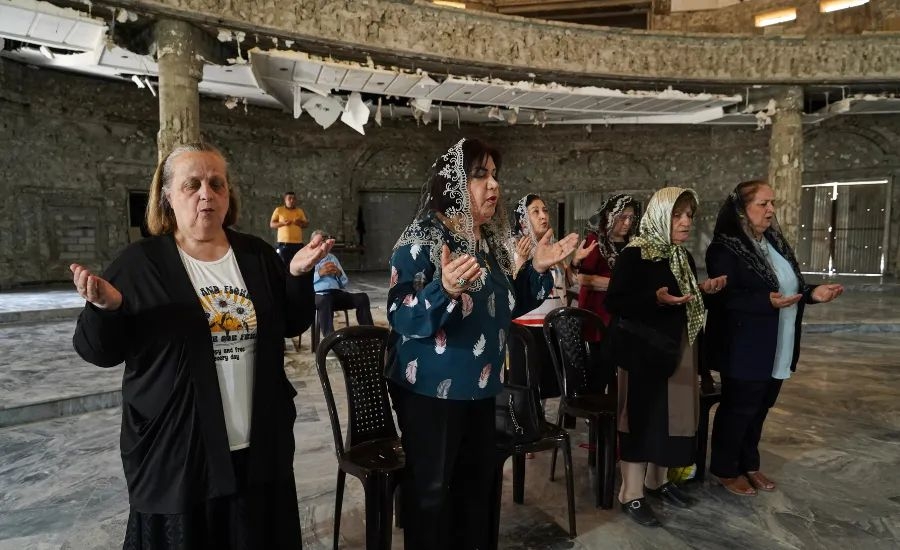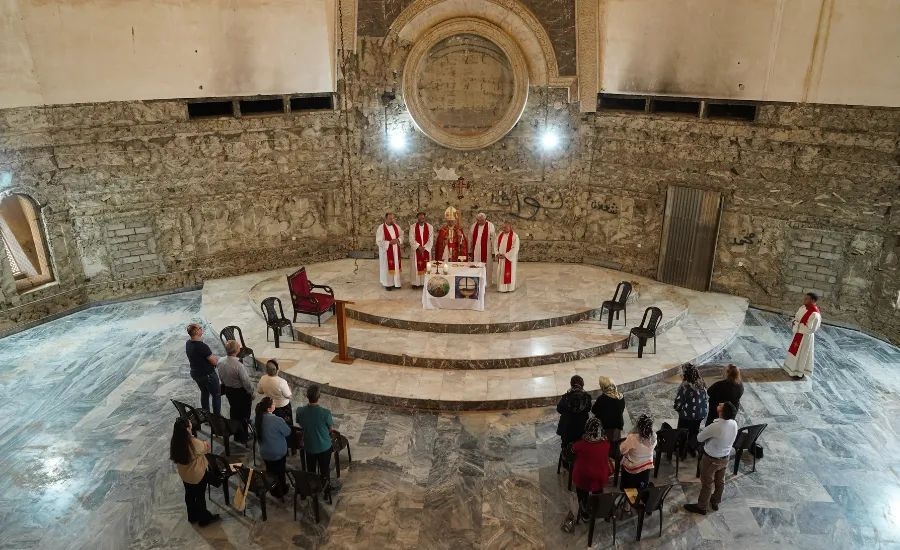The number of Christians in Iraq was notably absent from the official results of the country's 2024 general population census, despite the inclusion of a section for religious identification in the forms issued by the Central Statistical Organization of the Iraqi Ministry of Planning.
While all parties agree on the significant decline in the number of Christians in Iraq over the past decades for well-known reasons, and while awaiting the announcement of official results regarding their actual proportion, the Chaldean Patriarchate has provided important information on this matter through its official website.
The Patriarchate noted that Christians previously made up 4% of Iraq's population, with their numbers approaching one and a half million before waves of migration caused the departure of nearly two-thirds of them, leaving around half a million, according to the Patriarchate's estimate. It stated that if Christians currently make up 1% of Iraq's 45 million people, according to the latest census, then the number of Christians today is approximately 450,000.
Information or Accurate Statistics?
The Patriarchate emphasized in its post that there has been no accurate official census of Christians in Iraq for nearly thirty years, relying on ecclesiastical information for its announcement about the number of Christians and their distribution across Iraq's cities.
The post confirmed that Baghdad hosts the largest number of Christians, with Chaldeans comprising 80% of them. There are 14 Christian communities (denominations), in addition to new Evangelical churches" in Baghdad. The post mentioned that Chaldeans in Baghdad numbered around 750,000 during the last years of the previous regime, according to the Catholic Church's global directory.
Only 70,000 Christians in the Kurdistan Region
According to the Patriarchate, Erbil, the capital of the Kurdistan Region of Iraq, includes around 40,000 Christians, most of whom are concentrated in the district of Ankawa, the largest Christian community in the region. Duhok follows, with around 20,000 Christians distributed between the provincial center and its surrounding villages and towns, as well as 170 Chaldean and Assyrian families in Aqrah and its surroundings. Kirkuk and Sulaymaniyah also host around 10,000 Christians.
The Patriarchate concluded that the number of Christians in the Kurdistan Region does not exceed seventy thousand, including both original inhabitants and those displaced from Mosul and the towns of the Nineveh Plains.
The Patriarchate's post summarized the numbers in Bakhdida (Qaraqosh), considered the most important Syriac center in Iraq, and its surrounding villages and towns in the Nineveh Plains, called the "Hamdan Line," with around 30,000 people, mostly Syriacs and Chaldeans.
Regarding the opposite line of the Nineveh Plains, starting from Tel Keppe to Alqosh and then Sheikhan, the Patriarchate estimated their number at around 25,000, all Chaldeans. While only about 50 Christian families remain in Mosul, which had around 50,000 Christians before 2003, the southern provinces (Basra, Amarah, Diwaniyah, and Nasiriyah) have around 350 Christian families.


The Patriarchate attributed the migration to the kidnapping and killing of Christians by "Al-Qaeda," then their forced displacement from Mosul and the towns of the Nineveh Plains by ISIS, as well as "current" reasons, including "the control of armed factions over the towns of the Nineveh Plains, imposing taxes on their residents, and the monopoly of certain factions over Christian resources and representation in the state and its positions." Additionally, irregular payment of salaries to Kurdistan Region employees and other reasons have led Christians to "lose hope for the future due to the lack of a suitable environment for living with safety, freedom, and dignity."
Britain Refuses to Allow Trump to Use Its Bases to Strike Iran.